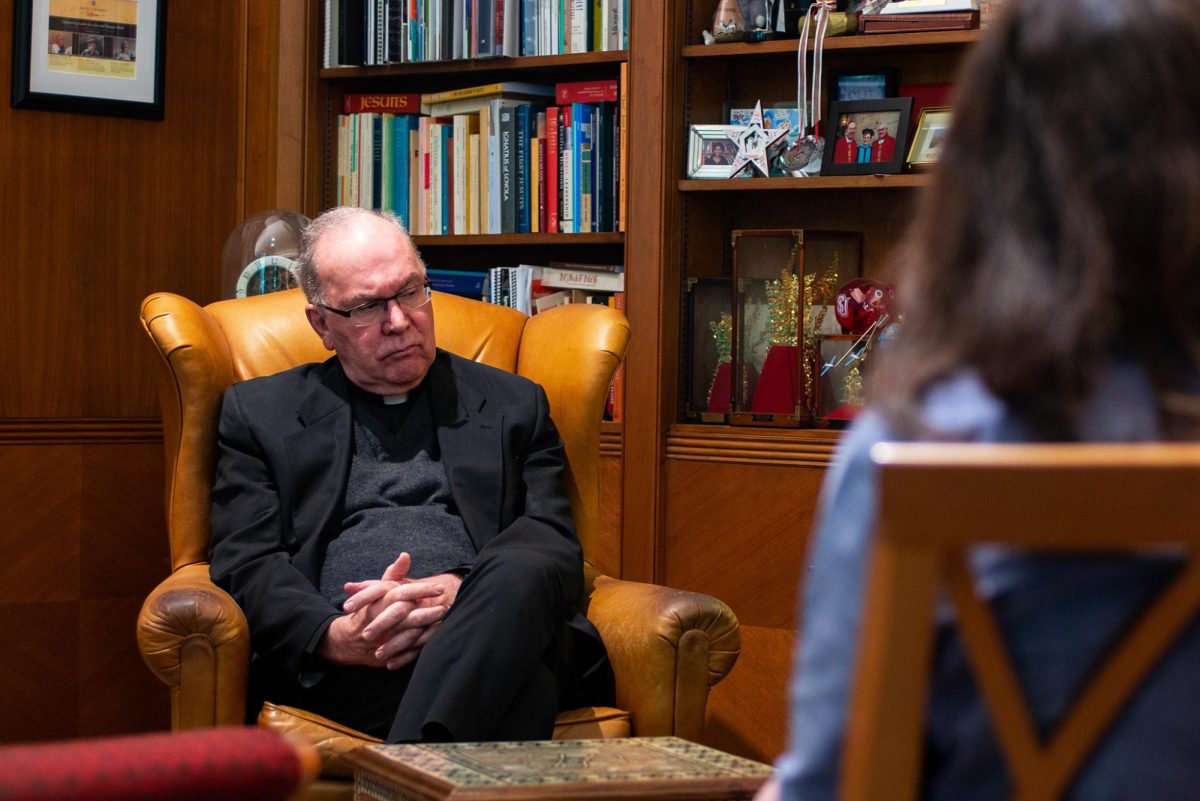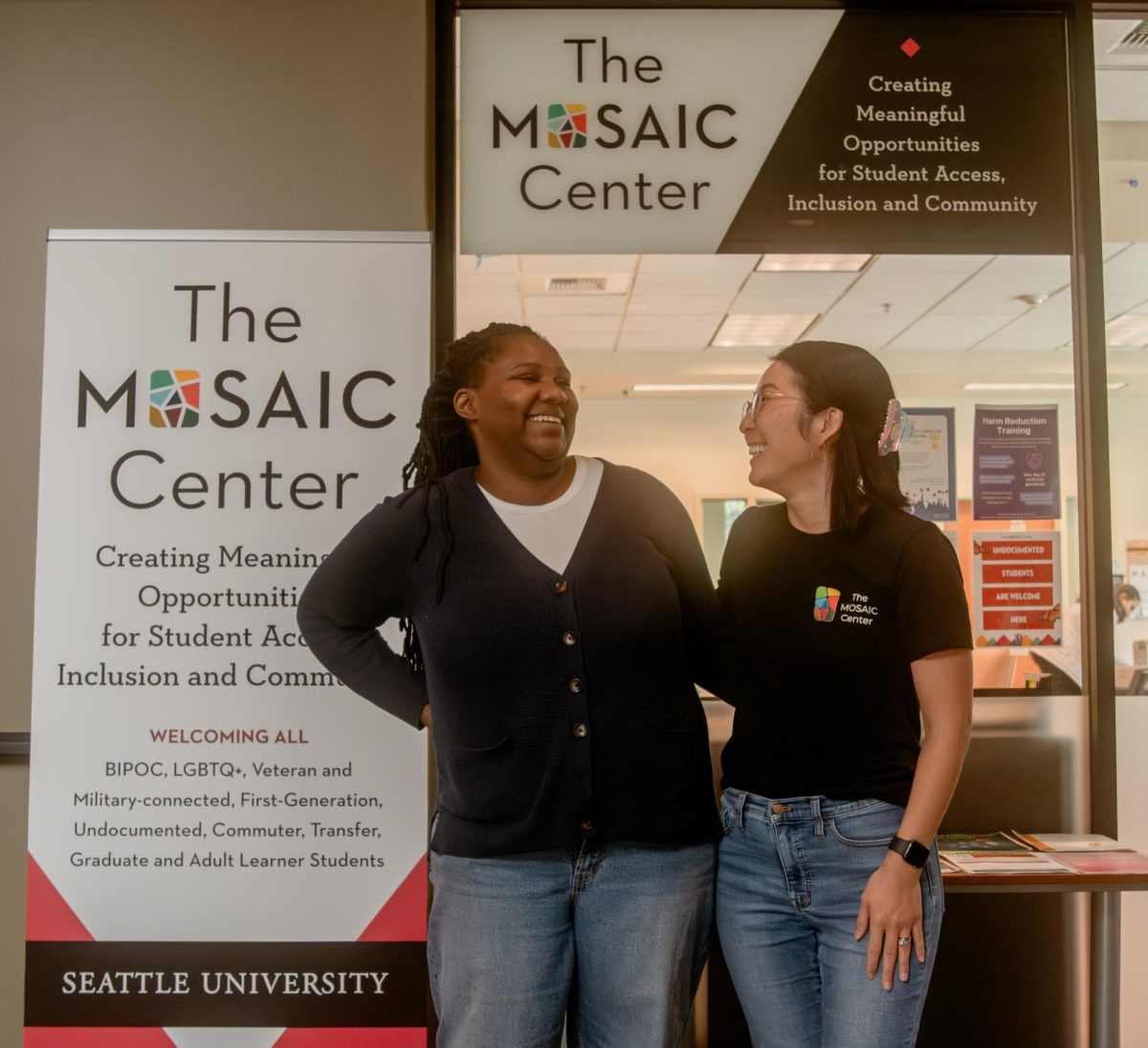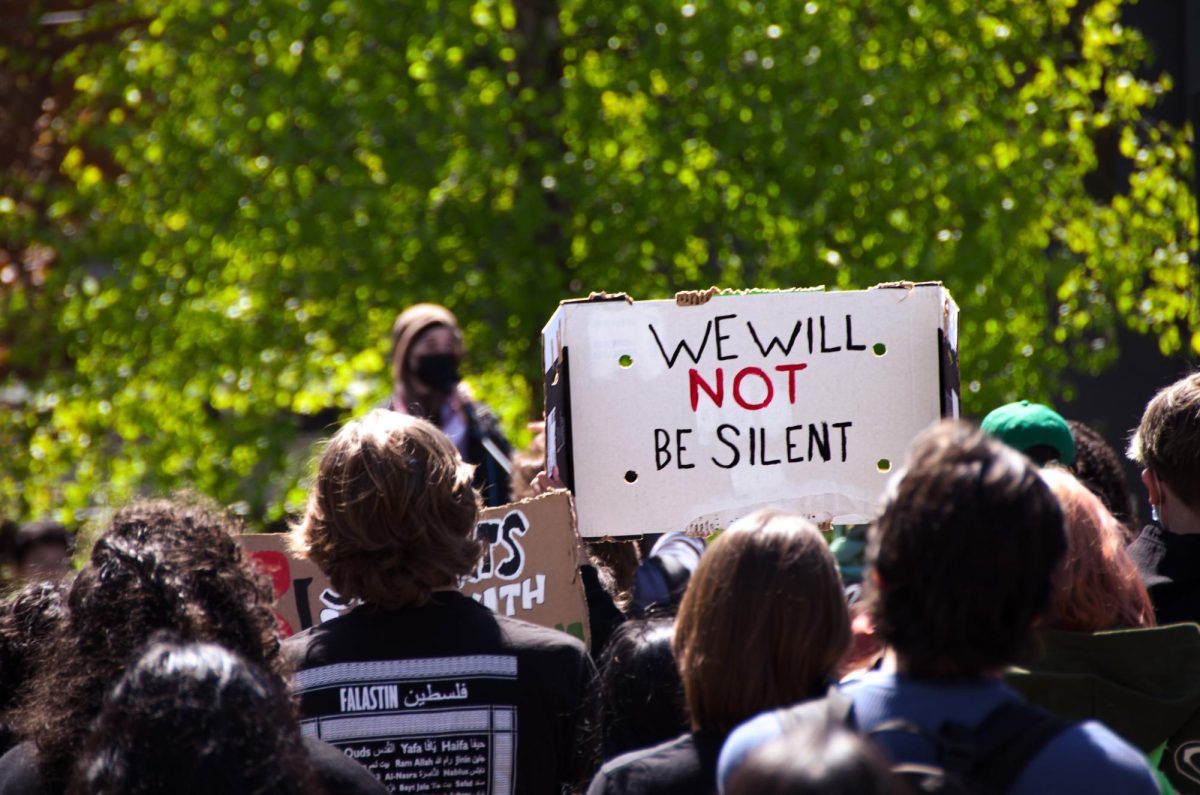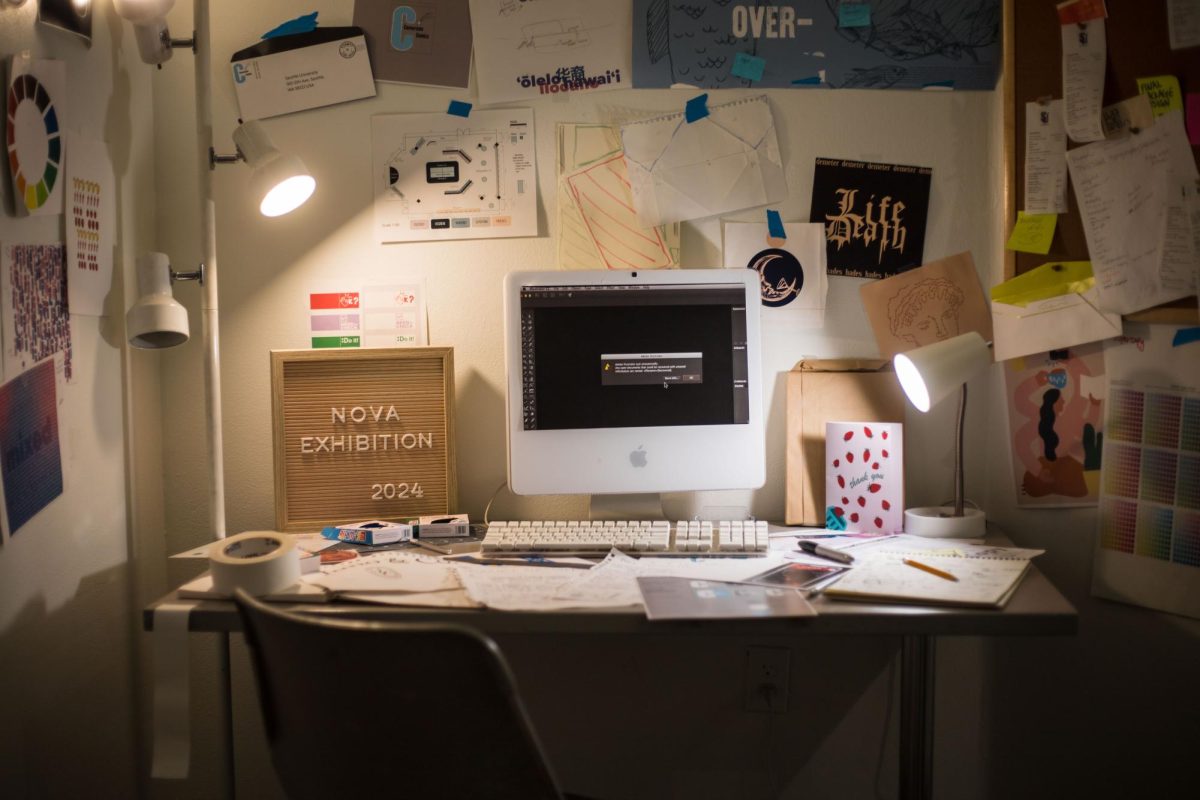On September 21, hundreds of thousands of marchers gathered in
New York City demanding swift action to save an ailing planet.
Meanwhile at SU, students continued to push for divestment.
Can economists and environmentalists agree before it’s too late?
If anyone thought the divestment movement would weaken over the summer, guess again. It has proven to be the student movement that just won’t die. As the world’s climate continues to warm, the divestment campaign continues to heat up across the country. As the United Nations Climate Summit is underway, the world is assessing where it stands with Mother Nature.
Divestment—the withdrawal of investments from fossil fuel companies—has had mixed success across university campuses. However, many organizations have continued to join the movement. In the past year, many students have demanded that Seattle University divest, especially the environmental group Sustainable Student Action (SSA), who first ignited the discussion.
On Sept. 21, Seattle U students joined hundreds of people who participated in the People’s Climate March in Seattle in an attempt to garner more action from those at the summit and other lawmakers.
“Eight months ago, pro-environment organizers started a nationwide Climate March calling on the United Nations Climate Summit to take action to stop climate change. Those of us who rallied and marched here in Seattle were in solidarity with those 400,000 who rallied in New York City,” said Seattle U student and SSA member Josh Sturman.
“Awareness was not a particular concern of this march. Instead, it was specifically designed to apply political pressure to Washington state politicians.”
He added that the success of the march remains to be seen.
“If people continue to take direct action against climate change and work to stop the corporations that contribute to it, then the march would be a success,” Sturman said.
Meanwhile, the heirs to the Rockefeller legacy have set an example by reinvesting in cleaner energy alternatives. John D. Rockefeller, co-founder of the oil industry’s Standard Oil Company, amassed a fortune thanks to fossil fuels, but his heirs will move away from this legacy.
According to the New York Times, the Rockefeller Brothers Fund—the family’s philanthropic organization worth $860 million—will also be joining other organizations and universities in the divestment movement.
Back here in Washington State, Seattle U’s position on divestment is still being challenged. Last year, the SSA and other supporters vigorously pushed for divestment, holding rallies in its favor and meeting with university officials like Chief Financial Officer Connie Kanter. The university ultimately issued a statement rejecting these demands.
Just as this schism in ideology was gaining speed, Seattle U began its summer term. Now that students have returned for fall quarter, it’s time to revisit where the university stands on environmental issues like divestment.
Seattle U’s Center for Justice and Sustainability had a conference in August regarding sustainability as it relates to environmental justice. According to Seattle U’s website, the conference, titled “Just Sustainability: Hope for the Commons”, was intended to address the following goals:
“-Emphasize EJS research in a wide variety of disciplines
-Build an EJS network of Jesuit institutions
-Inspire EJS work through the arts
-Highlight work being done by nonprofit and government agencies
-Foster interdisciplinary conversations, research, and teaching.”
The featured speakers at the conference were Navdanya.org co-founder Vandana Shiva, Earth Day co-founder Denis Hayes, and 350.org co-founder Bill McKibben.
According to the Seattle U website, more than 200 attendees came from 25 states, 12 countries and 11 U.S. Jesuit universities.
Seattle U student Katherine Dietzman attended the conference and said it was enjoyable.
“It was just a really concentrated group of people who share a passion for environmental work,” Dietzman said in an email to The Spectator. “There was such a diversity of backgrounds and perspectives that was so well paired with one communal fight for the betterment of life.”
Seattle U’s At Large Representative Owen Goetze said that while he did not attend the conference, he did attend a meeting with select faculty to discuss steps the university could take to make the campus more environmentally friendly.
“Some of the ideas that they brought up included a small ‘Carbon Tax’ that the school would put on all flights that athletics and other departments book—with that money going into a fund for projects designed to offset the carbon emitted from those flights,” Goetze said in a Facebook message to The Spectator. “Furthermore, the idea of an optional green fee for students came up—with the proceeds going into the Sustainable Projects Fund.”
Additionally, the students and faculty are working on a new direction for the old campaign.
“As far as divestment is concerned, the Task Force of SSA, SGSU, Vice President for Student Development Michelle Murray and CFO Connie Kanter, are currently working on an educational forum for faculty about the options they have for their retirement funds. As it stands now, the faculty have ethical investment options for their retirement funds, and the Task Force hopes to educate the faculty who may not know about these options,” Goetze said.
He was quick to add that the forum will certainly not encourage any of the faculty to make these investments because of liability issues; it is for informational purposes only.
The SSA continues to regroup and pursue their mission. In a statement to The Spectator, the SSA wrote the following message, summarizing their motions thus far:
“This fall Sustainable Student Action is jumping back into the quarter in new and energizing ways. Over the summer we spent our time strengthening our organizing skills and learning more about divestment strategy. SSA was represented at a national conference on ethical endowments, members attended a week long activism camp on Vashon Island, and we had a huge voice at the People’s Climate March in Seattle. Further, with the recent commitments made by the Rockefeller Foundation and University of Dayton (a Catholic institution) we have national precedent for divestment based on financial security as well as the guidelines of Catholic social teaching.”
The statement went on to explain the group’s next moves.
“With this SSA enters the quarter already in the process of building a coalition with faculty. We also look forward to this year’s celebration of the 15th Anniversary of Nelson Mandela’s Honorarium at Seattle University as it stands in memory to Seattle U’s Divestment from South African business as part of the movement to end apartheid. We also look forward to welcoming new students to SSA and integrating their passions and energy into divestment and other new projects.”
Lena may be reached at [email protected]















